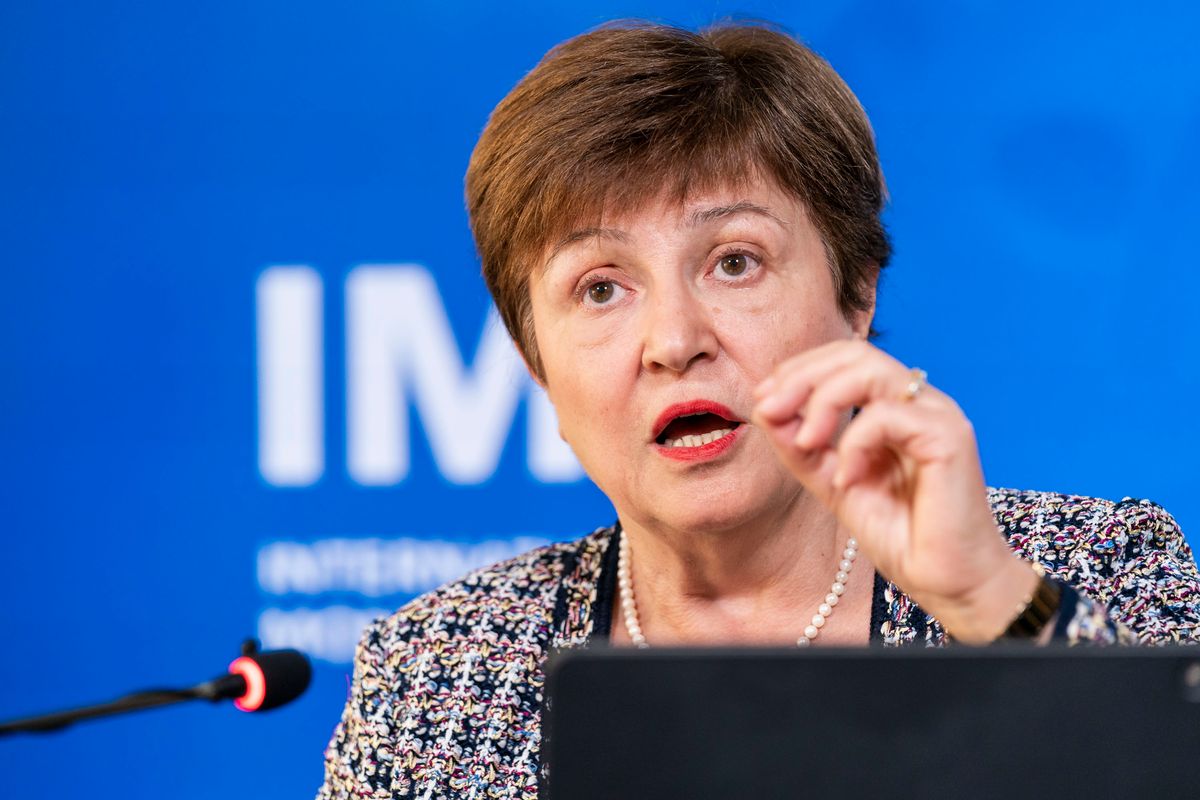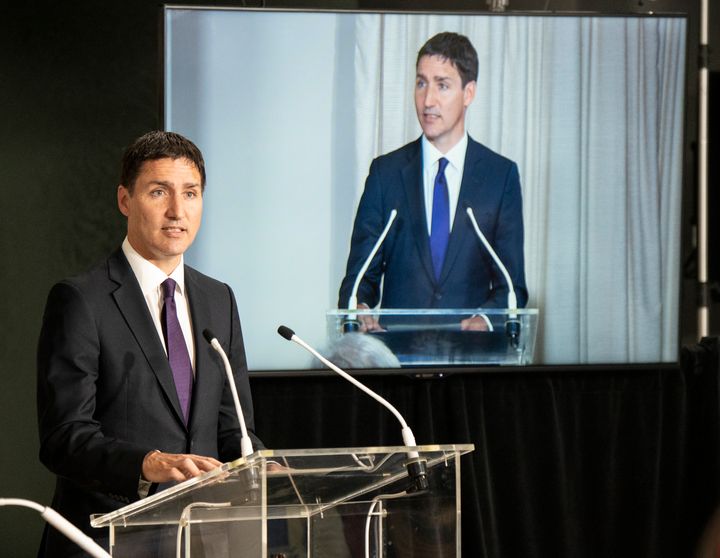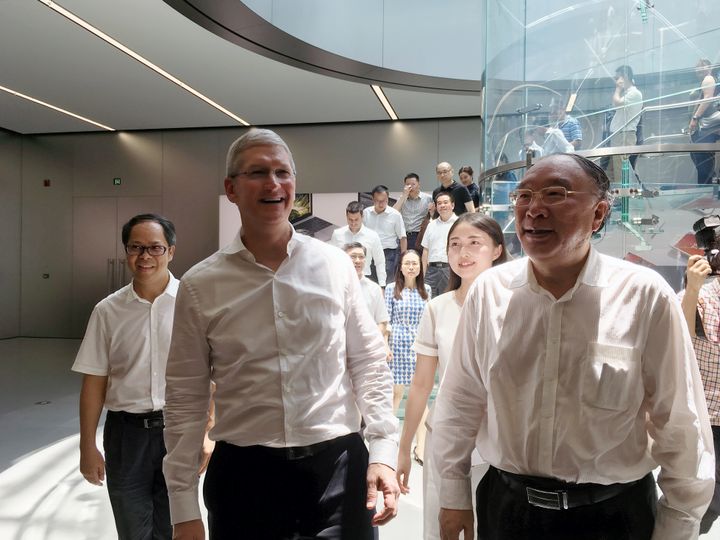IMF Warns US-China Tensions May Cut World Output By 2%

The Lede: The tensions between the U.S. and China could result in a loss of approximately 2% of global output, according to the IMF’s latest report. The capital is now flowing toward countries that share geopolitical affinities, commonly referred to as "friend-shoring" – the trend that IMF said could have disproportionately negative impacts on less developed markets, leading to further economic disparities.
What we know:
- In its latest report, IMF has cautioned that businesses and policymakers worldwide are considering measures to enhance the resilience of their supply chains, including relocating production to domestic or reliable foreign locations, indicating to the CHIPS Act. Such actions may result in “fragmenting foreign direct investment.”
- IMF, which was founded in 1944 to promote international monetary cooperation and facilitate international trade, currently is struggling to define its role in a rapidly changing global economy in which relations between the United States and China have reached new lows, fueled by trade restrictions and the issues over Taiwan.
- The head of the IMF, Kristalina Georgieva, said in a Bloomberg Television interview that China, which is the largest bilateral creditor to developing nations, must demonstrate its ability to function within established global debt relief frameworks intended for impoverished countries like Zambia that have difficulty making payments. Meanwhile, China has been hesitant to provide relief, according to Bloomberg.
- Beijing has called for loans from multilateral development banks and domestic creditors to be included in the country’s restructuring, arguing that multilateral lenders such as the IMF should also bear losses. Other countries, including the U.S., the IMF’s largest shareholder, have rejected such proposals, accusing Beijing of delaying the provision of relief and “dragging its feet.”
- Chinese top officials are set to attend the World Bank and IMF spring meetings in Washington this week. It marks their first in-person attendance in three years, since for China, virtual participation was the only option due to strict COVID-19 restrictions.
The background: Debt restructuring refers to a process in which a borrower and its creditors agree to modify the terms of an existing debt agreement. The goal is to make the borrower's debt burden more manageable, so they can continue to service the debt and avoid default. It is often used as a way to help countries that are facing financial difficulties and want to regain their financial footing.
When it comes to debt restructuring, Chinese creditors have posed a challenge to the IMF. Before lending money, the fund must ensure that a country's borrowing is sustainable, often involving a restructuring of existing debts. These write-downs were formerly agreed upon through negotiations led by the IMF, primarily within the Western countries' "Paris Club" of creditors. In late 2020, the Paris Club teamed up with newer lenders like China, India, and Saudi Arabia to establish a roadmap known as the Common Framework. The framework is intended to restructure the debts of impoverished countries on a case-by-case basis. However, China's emergence as a significant lender over the past two decades has complicated this process. Currently, at least 65 countries owe China over 10% of their external debt. Despite making vague promises to do so, China has neither reduced the face value of its loans nor extended repayment periods to meet the IMF's requirements, according to the Economist.
The Economist wrote that China has two main complaints about the way the IMF operates. Firstly, the country's policy banks, such as China Development Bank, are typically considered state lenders instead of private ones, which often receive better treatment during restructuring. Secondly, China believes that multilateral institutions, such as the IMF, do not take write-downs, which it perceives as the West avoiding responsibility.
To get the IMF operational again, it could adopt its "lending-into-arrears" policy, first employed after Russia declined to participate in a restructuring of Ukraine's debt in 2015. This strategy aims to bypass stubborn creditors by utilizing safeguards to prevent them from profiting from a restructuring. Western nations could offer loans to heavily indebted countries if they are convinced that Chinese lenders would not profit from such aid. American officials seem to be open to the idea.
Likely outcomes/Takeaway:
- In the context of the IMF's identity crisis, China's objections to the current IMF framework are just one example of the broader challenge that the organization faces in adapting to the changing global economic landscape. As the Economist reported, middle-income countries in chronic economic distress have become increasingly politicized, making loans more about geopolitics than economics. The IMF's efforts to shift resources towards climate loans and healthcare initiatives have faced significant diplomatic hurdles, further complicating its ability to execute a coherent strategy.
- If the IMF fails to include China in debt restructuring efforts, it could result in Chinese lenders benefiting from IMF bailouts rather than the intended recipient countries. This could further exacerbate economic disparities and undermine the effectiveness of IMF assistance. It could also lead to a loss of confidence in the IMF as a global economic institution, particularly if it is unable to provide effective solutions to the challenges posed by China's rise as a creditor nation.
- If the tensions between the U.S. and China lead to a loss of approximately 2% of global output, as warned by the IMF, it could have significant economic consequences - a decline in economic activity, lower employment rates, and potentially slower economic growth. It could also impact global trade and investment, leading to further economic disparities between developed and underdeveloped nations.
Quotables:
- “China has been very slow to recognize that multilateral debt restructuring requires China to play by the rules that are already established,” Managing Director Kristalina Georgieva.
- “In a fragmented world with heightened geopolitical tensions, investors may worry that nonaligned economies will be forced to choose one bloc or the other in the future, and such uncertainty could intensify losses,” IMF report.
- “A fragmented world is likely to be a poorer one,” IMF economists.
- “The IMF has now landed on the worst of both worlds,” a former IMF official.
Good Reads:
The IMF faces a nightmarish identity crisis (The Economist)
IMF Says China Must Show It Can Play by World Debt-Revamp Rules (Bloomberg)
The global economy will grow at the slowest pace in 3 decades as higher interest rates bite, IMF chief says (Markets Insider)



